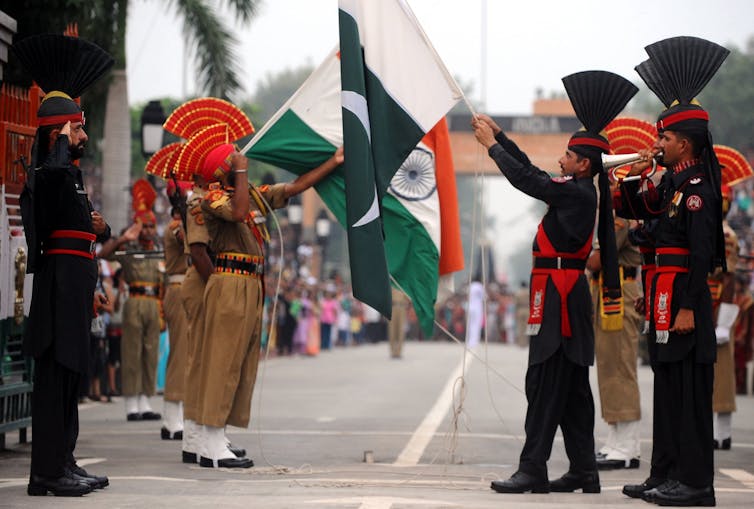
1. Partition and Independence (August 14-15, 1947)
Pakistan was created as a separate nation for Muslims following the Indian Independence Act of 1947. The new nation, led by Muhammad Ali Jinnah, came into existence on August 14, 1947. The act of partition led to massive population movements as millions of Hindus and Sikhs migrated from Pakistan to India, while Muslims moved from India to Pakistan.
2. Kashmir Conflict (1947-1948)
Almost immediately after partition, conflict erupted in the princely state of Jammu and Kashmir, a majority Muslim state ruled by a Hindu Maharaja. Both India and Pakistan claimed the region, leading to the first India-Pakistan war in 1947-1948. The United Nations brokered a ceasefire in January 1949, which established the Line of Control, effectively dividing Kashmir into Indian-administered and Pakistan-administered territories.
3. First Constitution (1956)
Pakistan adopted its first constitution in 1956, declaring itself an Islamic republic.
4. Second India-Pakistan War (1965):
In April 1965, a second India-Pakistan war, known as the Second Kashmir War, erupted over territorial disputes in Kashmir. It ended with a ceasefire brokered by the Soviet Union and the United States, leading to the signing of the Tashkent Agreement in 1966.
5. Third India-Pakistan War (1971)
The Bangladesh Liberation War, which began in March 1971, resulted in the creation of Bangladesh as an independent nation, formerly East Pakistan. The conflict was marked by widespread atrocities and violence. The Indian Armed Forces intervened in December 1971, leading to the surrender of Pakistani forces and the creation of Bangladesh. This war also led to the Shimla Agreement in 1972, in which Pakistan recognized the independence of Bangladesh.
6. Military Coups (1958 and 1977)
Pakistan experienced military coups in 1958 and 1977, leading to periods of military rule. General Ayub Khan came to power in 1958, and General Zia-ul-Haq took over in 1977. These periods of military rule significantly influenced the country's political and social landscape.
Pakistan's early history was marked by territorial conflicts, political changes, and internal strife. The nation has faced numerous challenges throughout its existence, including political instability, conflicts with neighboring India, and the search for a stable democratic system. Pakistan's history is characterized by a complex interplay of political, social, and cultural factors, and it continues to evolve.

Social Plugin